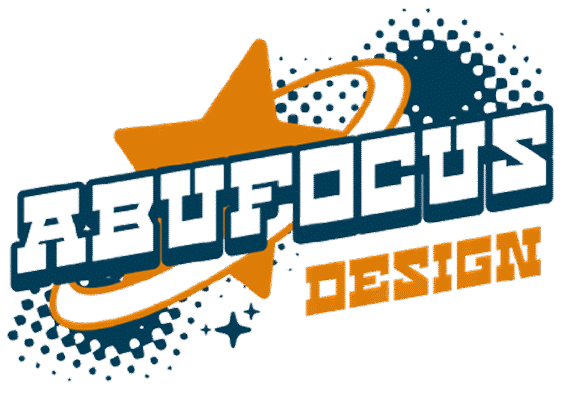2024
ICT-YEP
ICT-YEP is an innovative initiative designed to empower young individuals with essential ICT and entrepreneurial skills, providing them with opportunities to build sustainable careers in the digital economy. The program simplifies the application and enrollment process through an intuitive online portal, offering a variety of training modules, mentorship opportunities, and career development resources. A standout feature of ICT-YEP is its comprehensive support system, which ensures participants receive guidance and resources to succeed—fostering trust, growth, and long-term impact for aspiring tech professionals.
Role
Lead Product (UIUX) Designer
Team
Founder
Product Owner
UX Researcher (Me)
Lead Designer (Me)
Developer
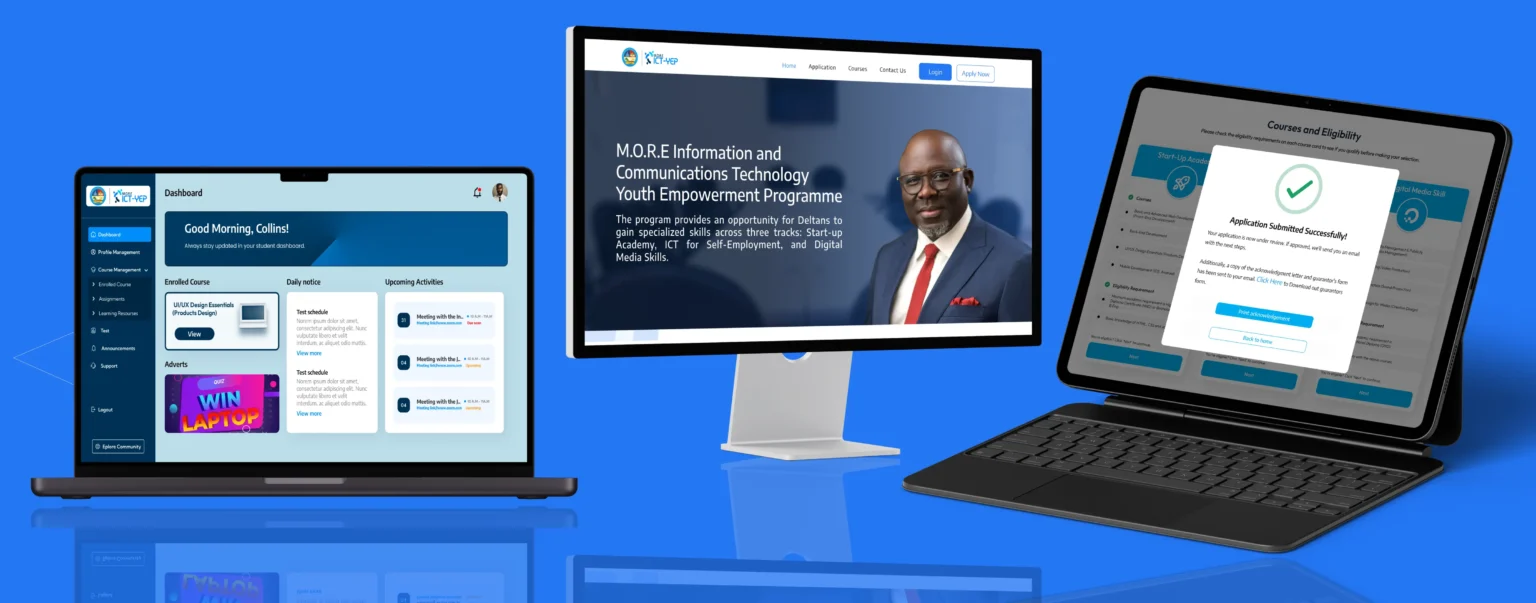
Click to jump to the relevant section
Problem Statement 👉🏾
Objectives 👉🏾
Goals 👉🏾
Business Challenges 👉🏾
Design Thinking Process 👉🏾
Empathize Phase 👉🏾
Define Phase 👉🏾
Ideate Phase 👉🏾
Design Phase 👉🏾
Conclusion👉🏾
Problem Statement
The Delta State Ministry of Science and Technology faced challenges in efficiently managing applications for the M.O.R.E ICT-Youth Empowerment Programme (ICT-YEP). The manual application process led to errors, delays, and limited accessibility for applicants. A digital solution was needed to streamline the application process, enhance transparency, and improve user experience for both applicants and administrators.
Objectives
- Develop a user-friendly online application portal to simplify the registration process.
- Provide administrators with tools to manage applications, verify documents, and schedule computer-based tests (CBTs).
- Ensure the platform is accessible, secure, and scalable for a wide audience.
- Enhance communication with applicants through automated notifications and status tracking.
Goals
- Efficiency: Reduce the time required for application submissions and processing.
- Transparency: Provide applicants with real-time updates on their application status.
- Accessibility: Design a mobile-responsive platform to cater to users on various devices.
- Security: Protect sensitive user data with robust encryption and compliance with regulations.
Project Challenges
Tight Deadline: Completing a comprehensive portal in 5 days required intense collaboration and prioritization.
Diverse User Base: Designing for applicants with varying technical proficiencies.
Data Security: Ensuring compliance with data protection regulations while maintaining a seamless user experience.
Scalability: Creating a system that could handle a large volume of applications and administrative tasks.
Design Thinking Process
The goal is to deliver an exceptional user experience and provide added value through the development of the M.O.R.E ICT-YEP online application portal. By leveraging the Design Thinking process, the aim is to create a user-centric solution that streamlines the application process, ensures accessibility for diverse users, and facilitates seamless enrollment into the program tracks, empowering participants to acquire specialized skills and drive personal and community growth.
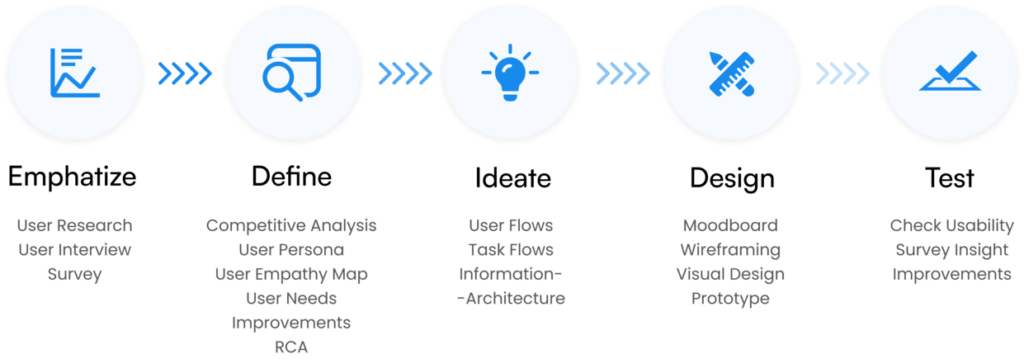
Empathize Phase
Product Users
- Age Group: 20-40 years old
- Education: OND, HND, or Bachelor’s Degree (B.Sc./B.Eng.), depending on the selected track
- Occupation: Unemployed individuals, job seekers, or those looking to acquire specialized skills for self-employment or entrepreneurship
- Location: Delta State, with a focus on residents of urban and semi-urban areas
- Income: Low to middle-income earners seeking free skill acquisition opportunities
- Gender: Male and female
- Tech-Savviness: Comfortable with technology and mobile applications, ranging from moderate to high users of digital platforms
Stakeholder Interviews
In conducting stakeholder interviews for the ICT-YEP project, I aimed to understand the expectations, challenges, and aspirations of various stakeholders regarding the empowerment program. Through open-ended questions, I explored their perspectives on existing training initiatives, their vision for impactful skill development, and the specific features they believed would enhance the application and training process. The insights gained from these interviews were crucial in shaping the design decisions and ensuring the platform effectively met the needs of both the applicants and program administrators.
Some Interview Questions
What is the primary goal of the ICT-YEP program, and how do you envision it impacting participants?
Who are the key stakeholders involved, and what roles do they play in the program’s success?
Are there any specific metrics you plan to use to measure the success of the program?
What challenges have you experienced with previous application processes?
What information or documents are mandatory for applicants to submit?
What is the ideal journey for an applicant from registration to final selection?
How are the three tracks (Start-up Academy, ICT for Self-Employment, and Digital Media Skills) structured, and what is the expected skill level for graduates?
What are the most critical elements applicants need to understand before selecting a track?
How do you plan to monitor and assess the learning progress of participants?
What support or resources (e.g., videos, assignments, forums) should the platform offer during the training?
What features are most important for managing the applications (e.g., sorting, status updates, filtering)?
How would you prefer to track the progress of applicants through the various stages of the process?
What level of customization or control do you require for reviewing and approving documents?
What common challenges or frustrations have applicants faced?
What level of customization or control do you require for reviewing and approving documents?
How important is visual branding and consistency with Delta State’s identity for the platform?
Quantitative Research
In addition to stakeholder interviews, we conducted a quantitative research study to gather numerical data about prospective participants’ preferences and behaviors related to ICT training and empowerment. This involved distributing a survey to a large sample size of individuals across different demographics in Delta State. The data collected provided valuable insights into the target audience’s needs, expectations, and aspirations for the M.O.R.E ICT-YEP program. This quantitative research helped us identify patterns and trends in participants’ interests, skill levels, and potential barriers, enabling us to design a platform and program structure that cater specifically to their needs.
Observations
70%
of users felt uncertain about the eligibility criteria for various courses and suggested more clarification during the application process.
55%
of participants expressed challenges with navigating complex registration processes, preferring a more straightforward and intuitive sign-up system.
60%
of participants indicated dissatisfaction with the lack of real-time feedback regarding their application status and suggested the inclusion of a progress tracker.
65%
of respondents preferred online learning options for certain courses, requesting the availability of digital resources alongside in-person training.
50%
of users noted that they would appreciate better guidance on career opportunities and practical applications of the skills learned through the program.
75%
of applicants expressed interest in interactive course materials, such as videos, quizzes, and hands-on projects, to enhance their learning experience.
Key Insight Derived - User Needs
Simplified Application Process: Users need an easy-to-navigate application system with clear steps to reduce complexity and encourage participation.
Clear Eligibility Information: Users prioritize transparent eligibility criteria for each track, ensuring they understand the requirements before applying.
Accessible Training Options: Users value flexible learning options, including in-person and online formats, to accommodate diverse schedules and preferences.
Real-Time Updates: Users appreciate timely notifications and progress tracking to stay informed about their application status and upcoming steps.
Interactive Learning Materials: Users prefer engaging resources like videos, practical exercises, and quizzes to enhance skill acquisition and retention.
Career Support and Guidance: Users need post-training resources, including mentorship and job placement assistance, to transition their skills into tangible career opportunities.
Inclusive Design: Users desire an interface that is intuitive, accessible, and tailored to their individual needs, making the overall experience stress-free and effective.
Features & Functionalities
To resolve user needs

Streamlined Application Process
Simplified step-by-step application process designed to guide users through registration, course selection, and document submission effortlessly.

Notification System
Real-time updates and reminders via email or SMS to keep users informed about deadlines and application status.

Mobile-Friendly Design
Responsive portal optimized for mobile devices, providing users with seamless access and usability on the go.
User Persona
The User Persona section provides an in-depth understanding of ICT-YEP’s target applicants, highlighting their background, goals, challenges, needs, motivations, and personal narratives. By delving into the profiles of potential participants, we crafted a user-friendly and inclusive application portal tailored to their unique requirements. These personas were developed using real-world data and insights gathered through stakeholder interviews and surveys, ensuring the portal design effectively addresses the needs of its intended audience and enhances their application experience.
Empathy Map
An empathy map is a tool used to understand the needs, thoughts, emotions, and experiences of users seeking to improve their skills and career prospects through the ICT-YEP program. It helps designers and program developers gain insight into participants’ goals, challenges, and motivations, enabling the creation of solutions that align with their aspirations. This understanding ensures that the design of the ICT-YEP portal and program effectively meets the needs of its users, providing a seamless and empowering experience.
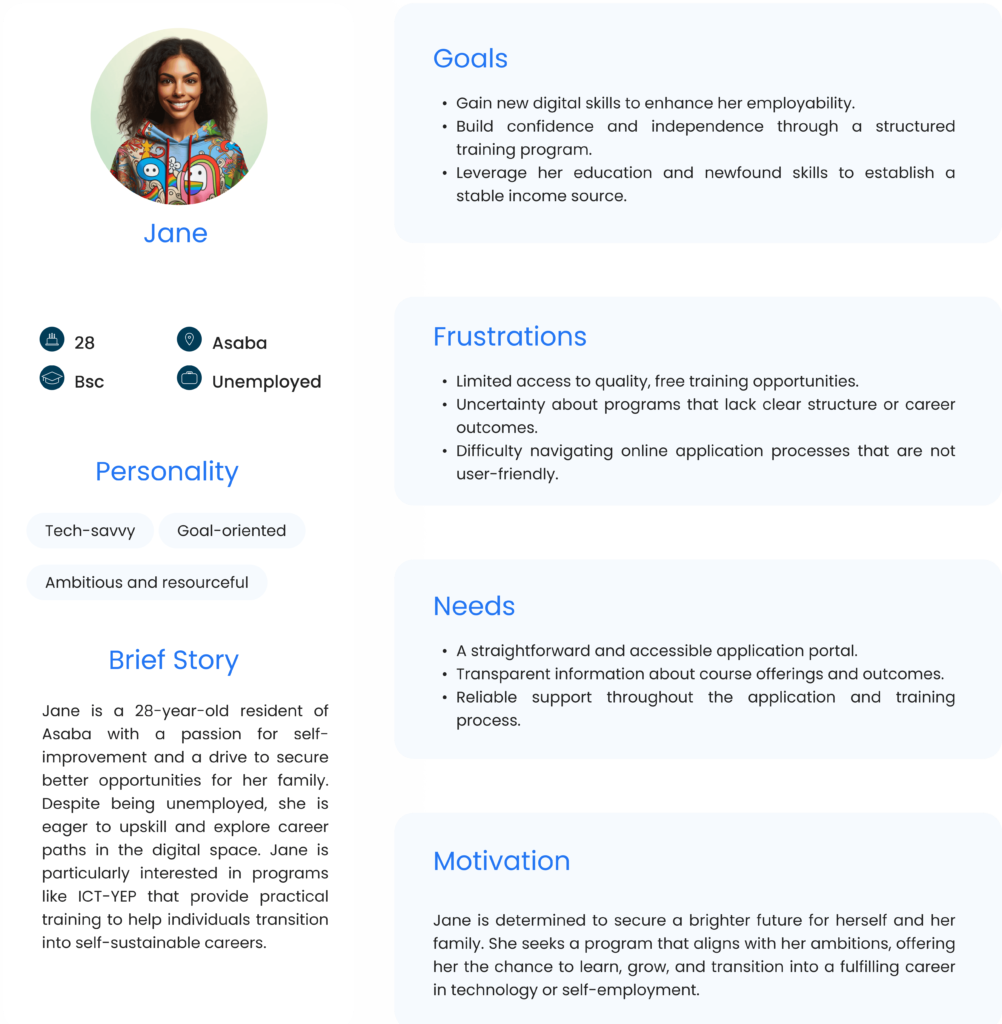
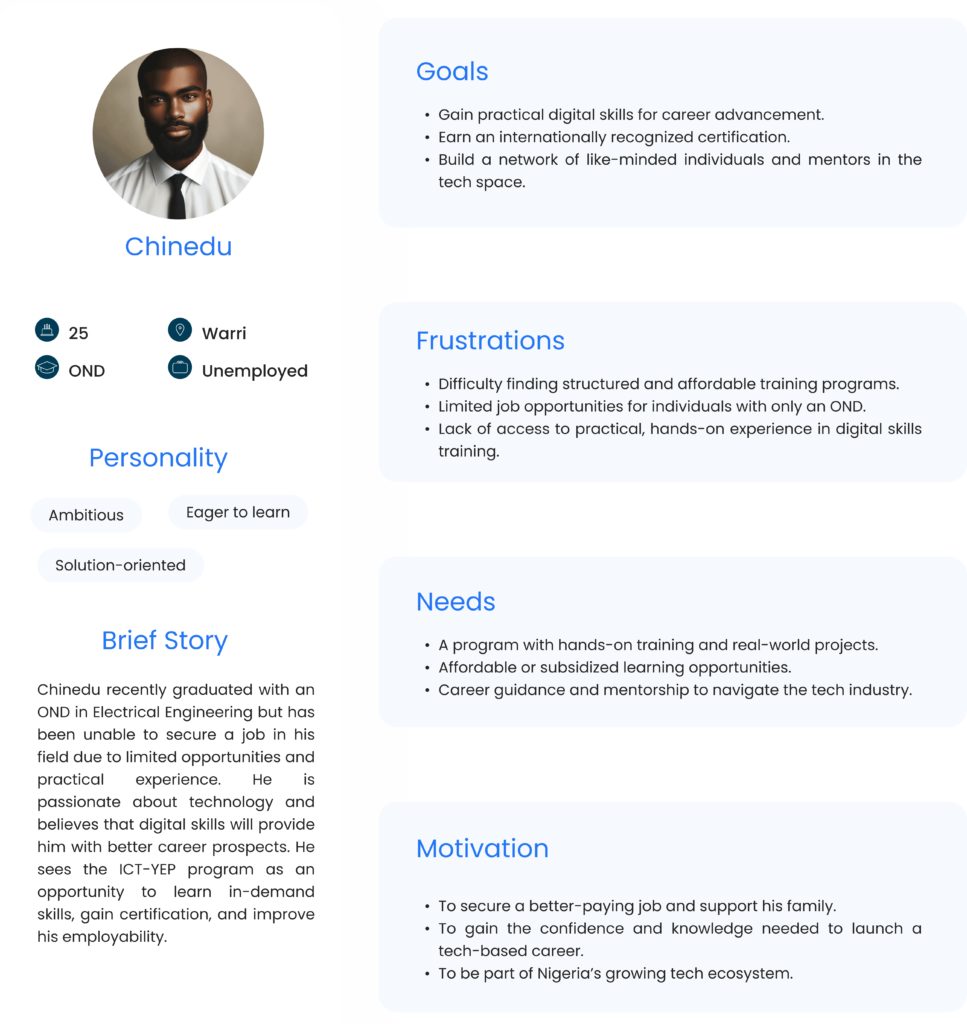
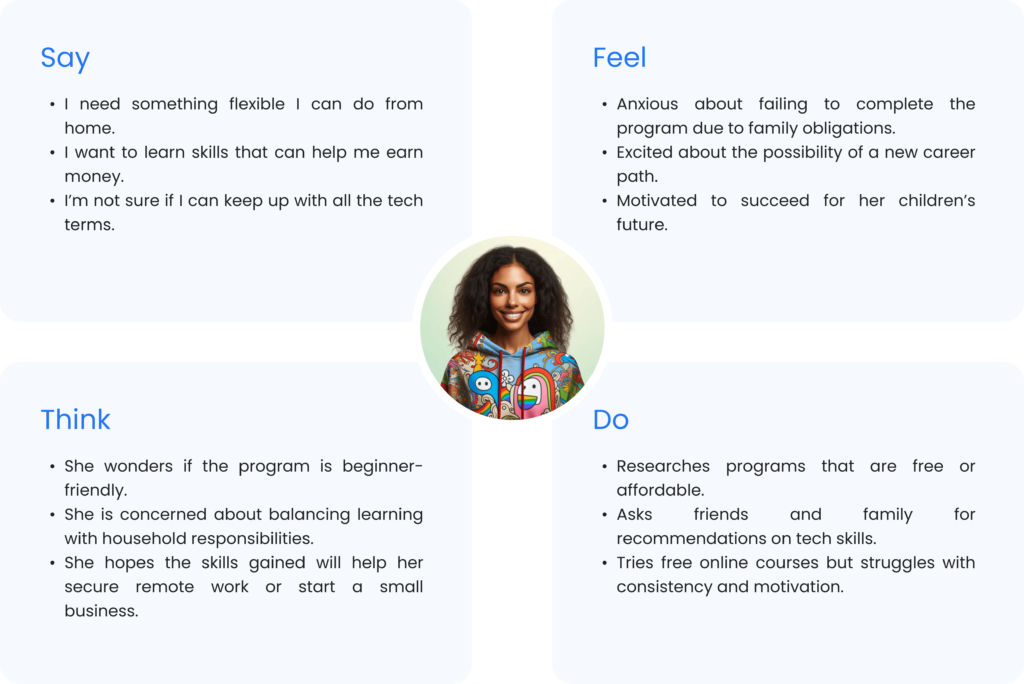
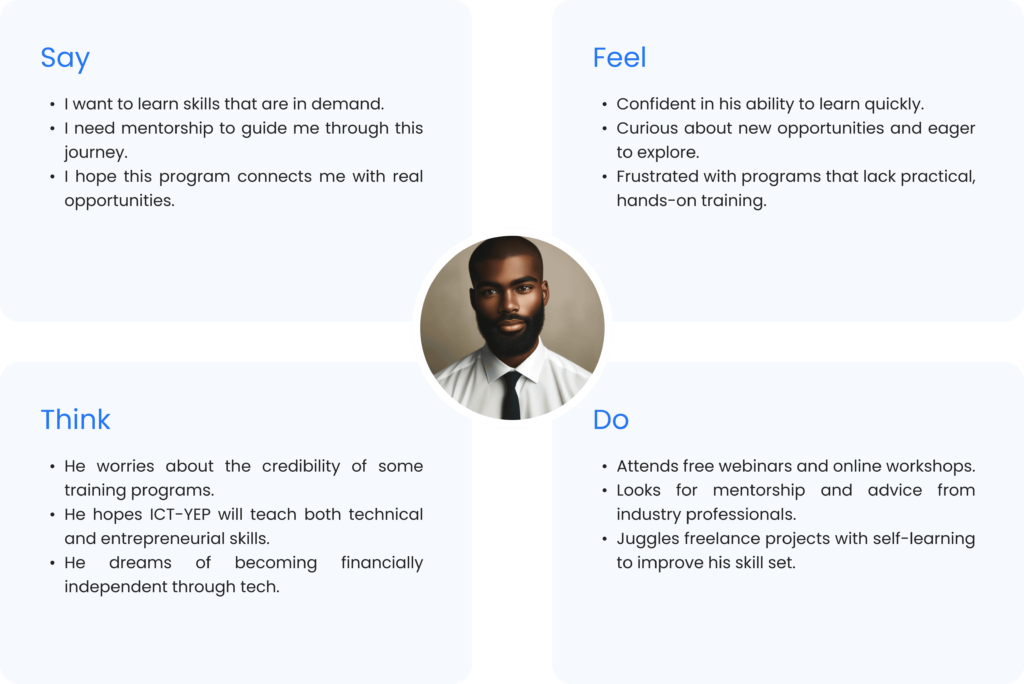
Ideate Phase
User Flows
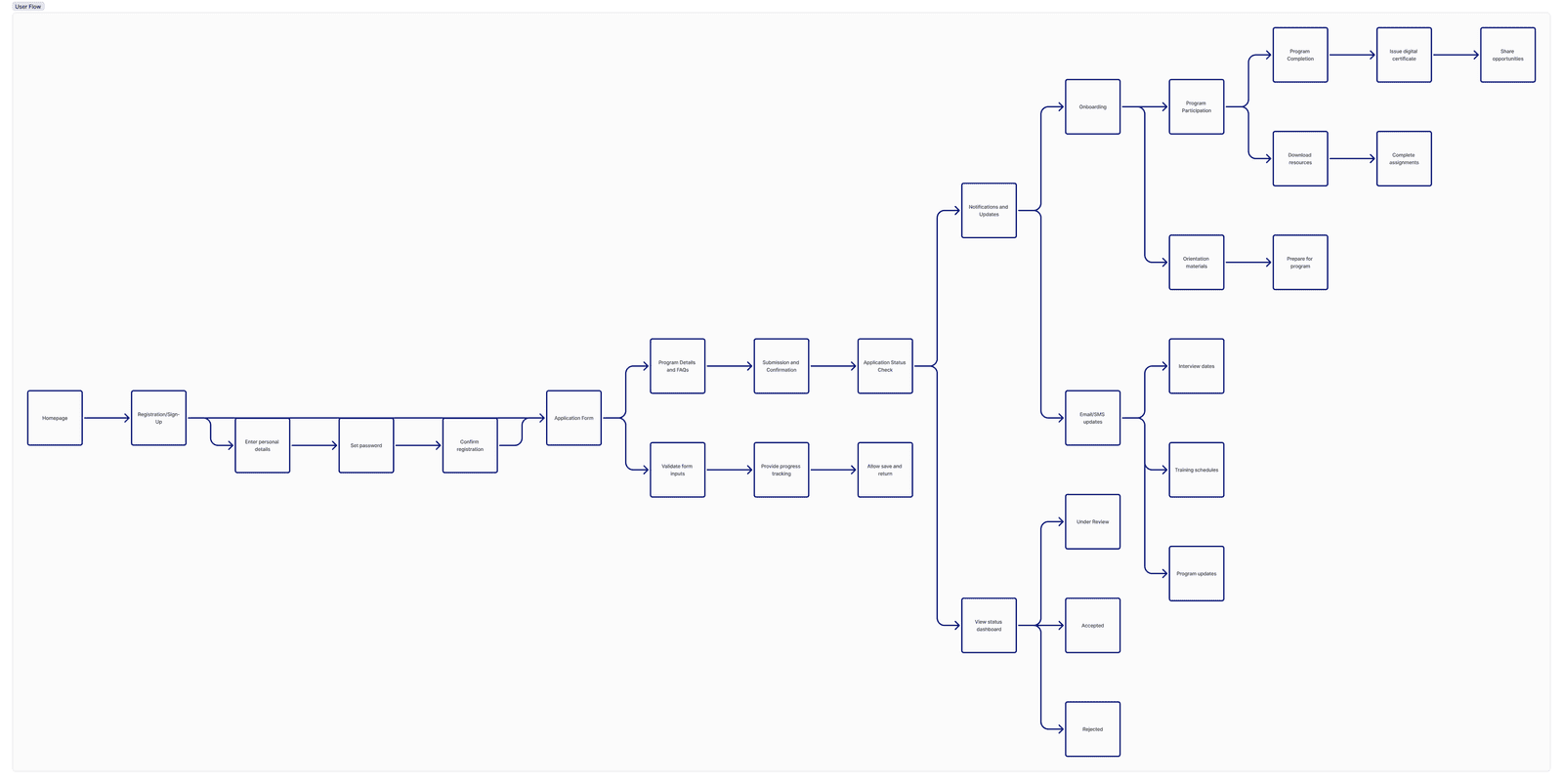
Actual Screenshot from Figjam file
Information Architecture
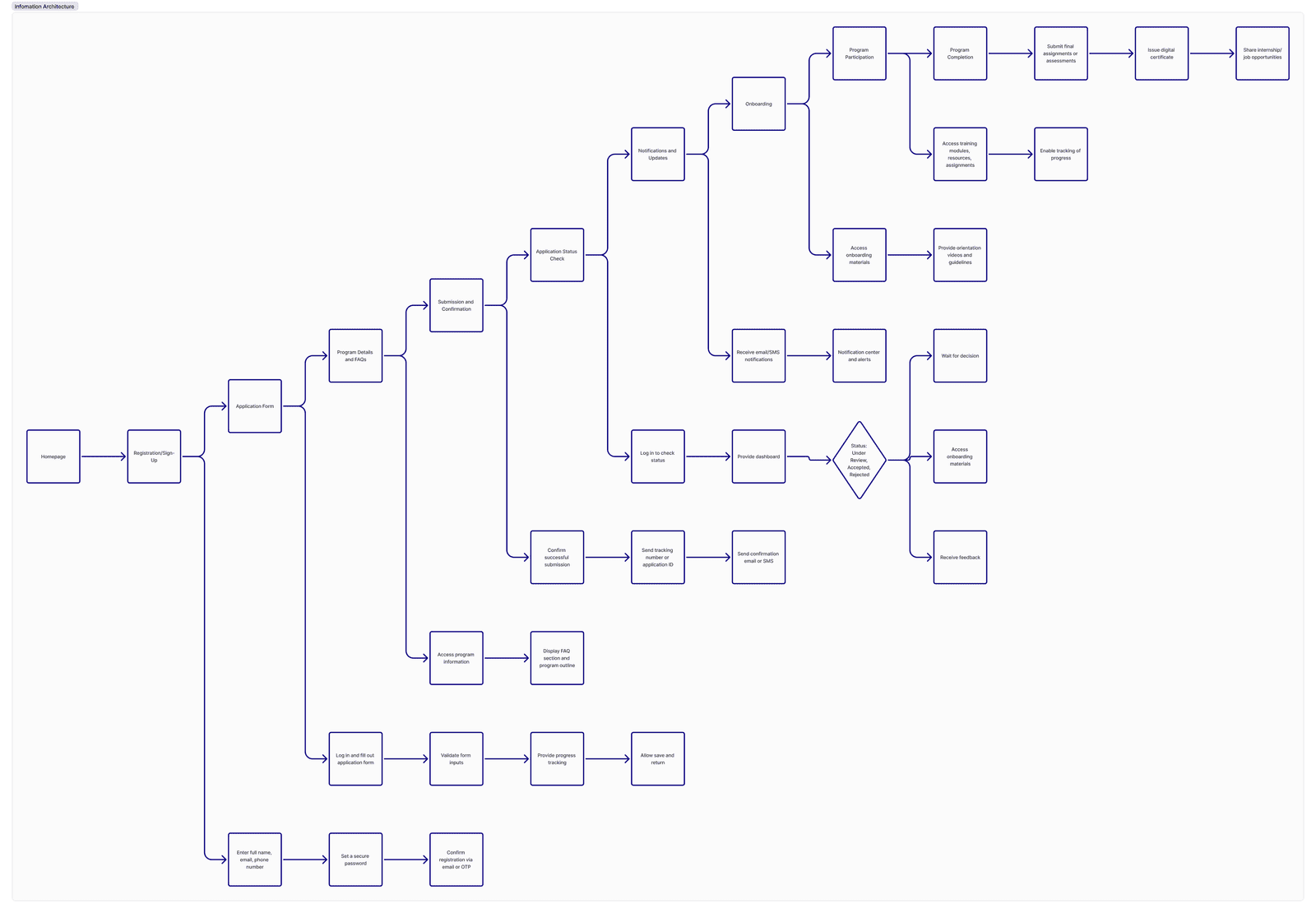
Actual Screenshot from Figjam file
Design Phase
Mood Board
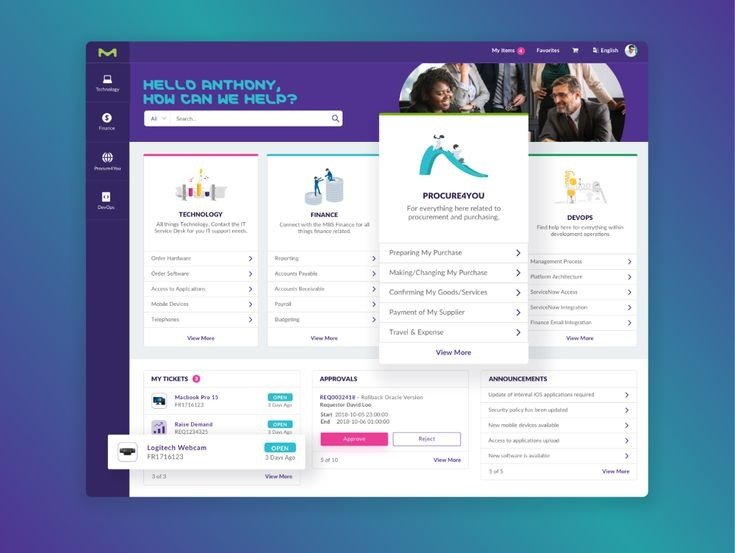
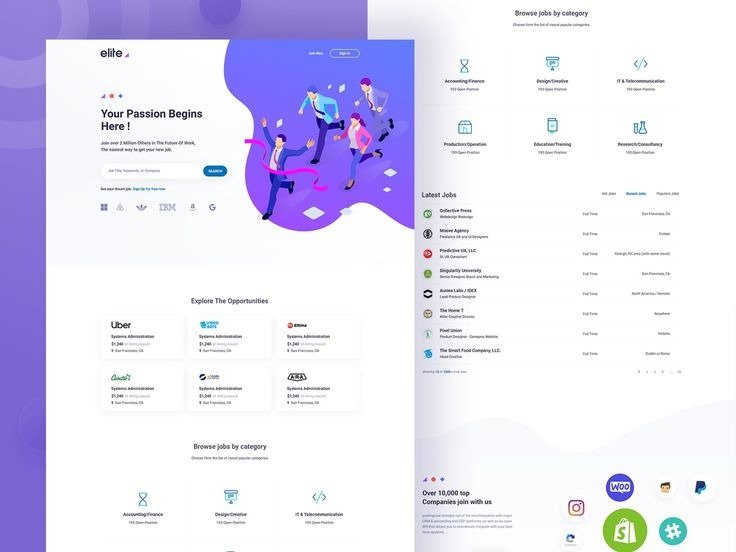
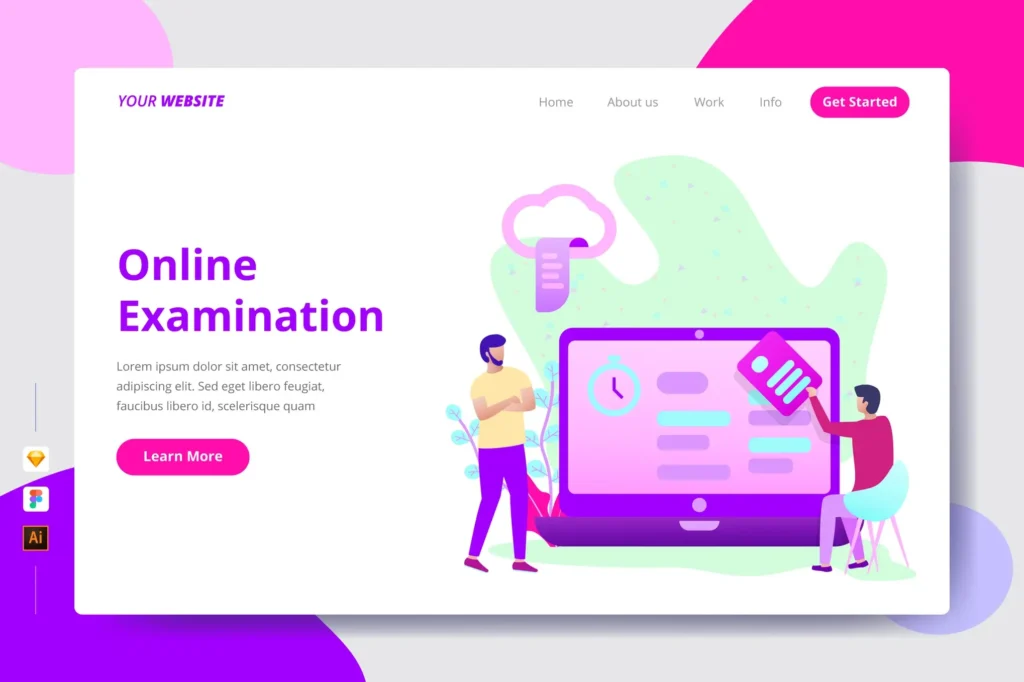
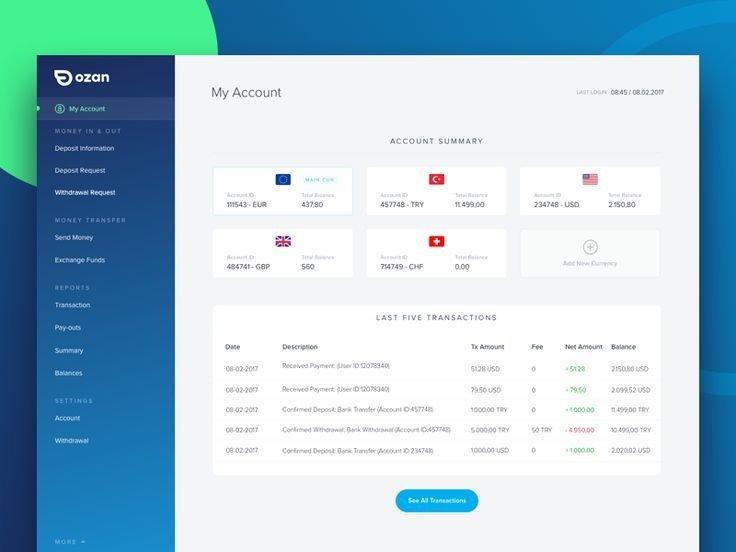
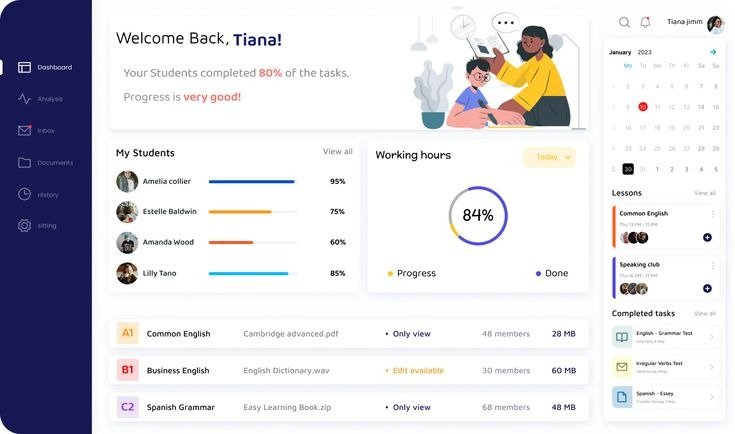
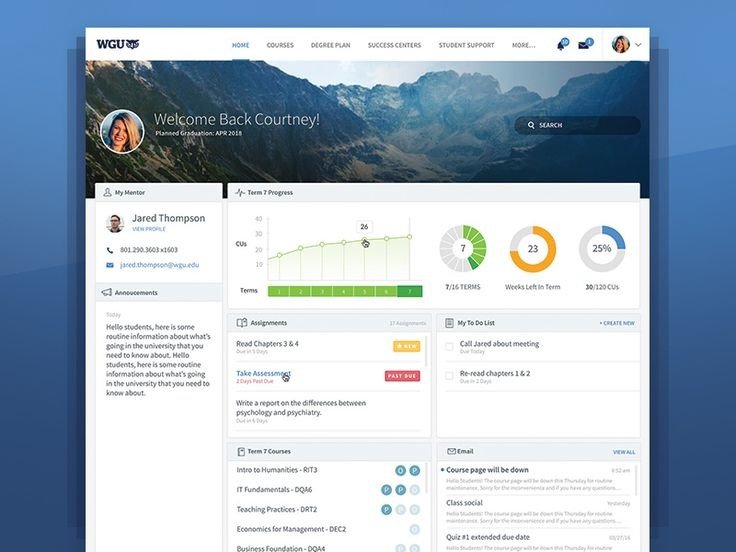
Actual Screenshot from Figjam file
Other Mockups
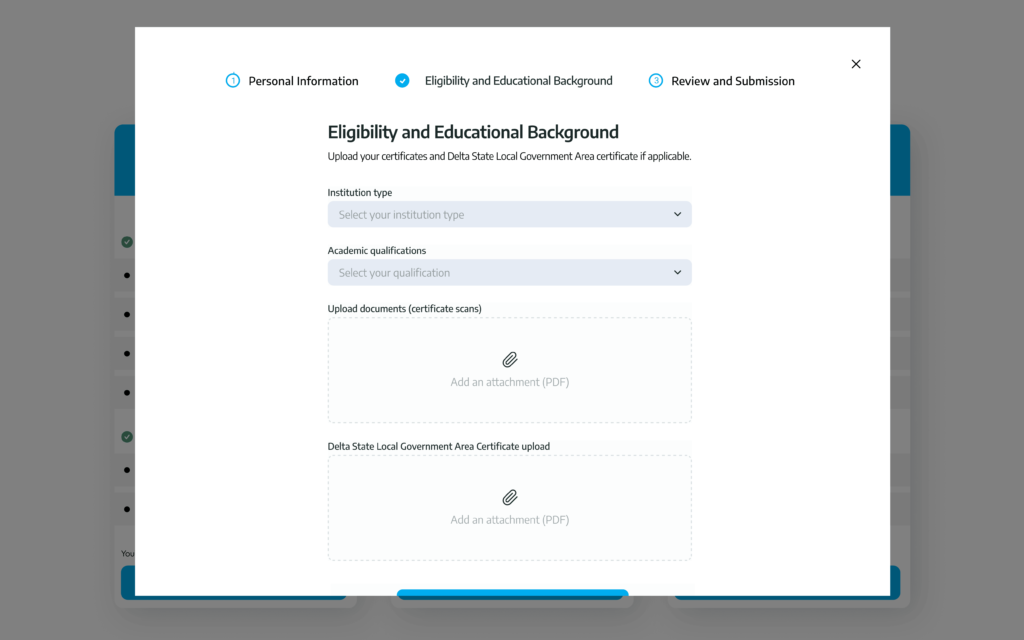
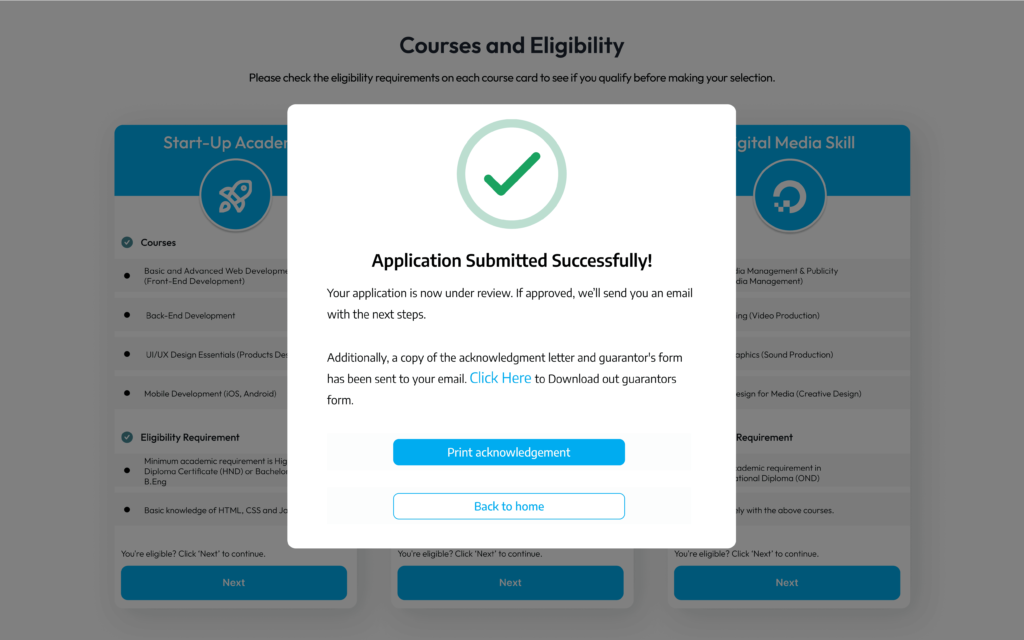
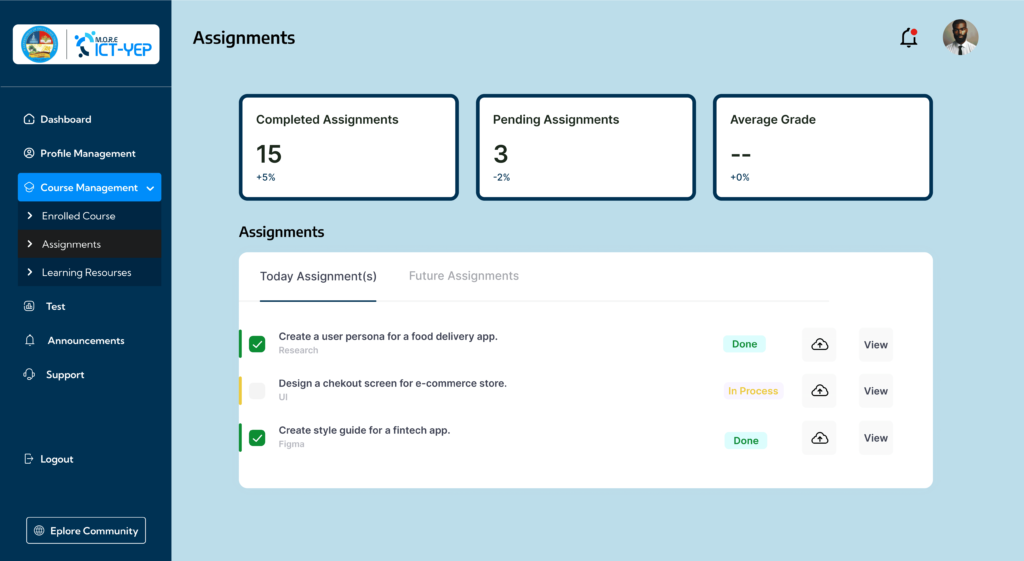
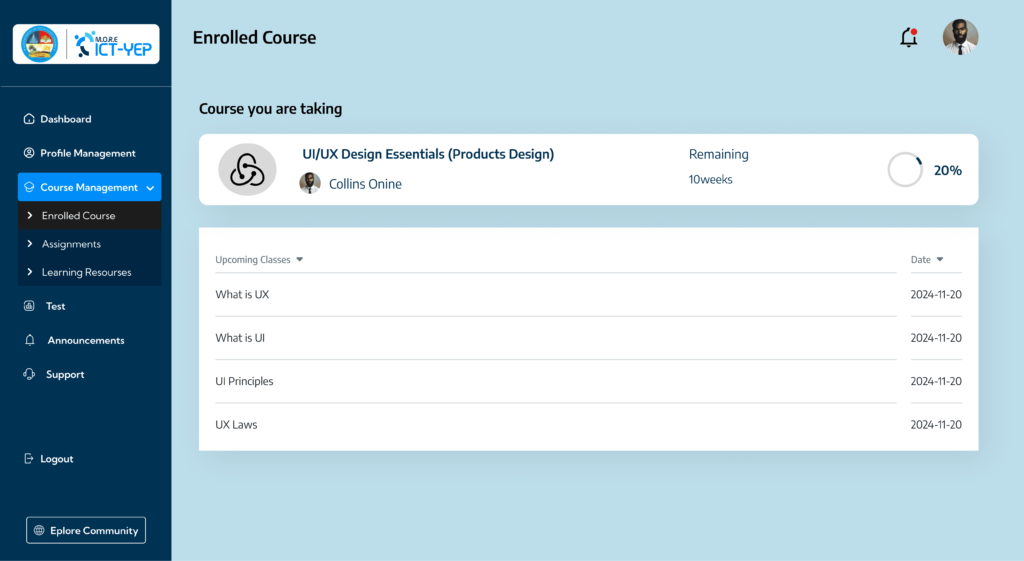
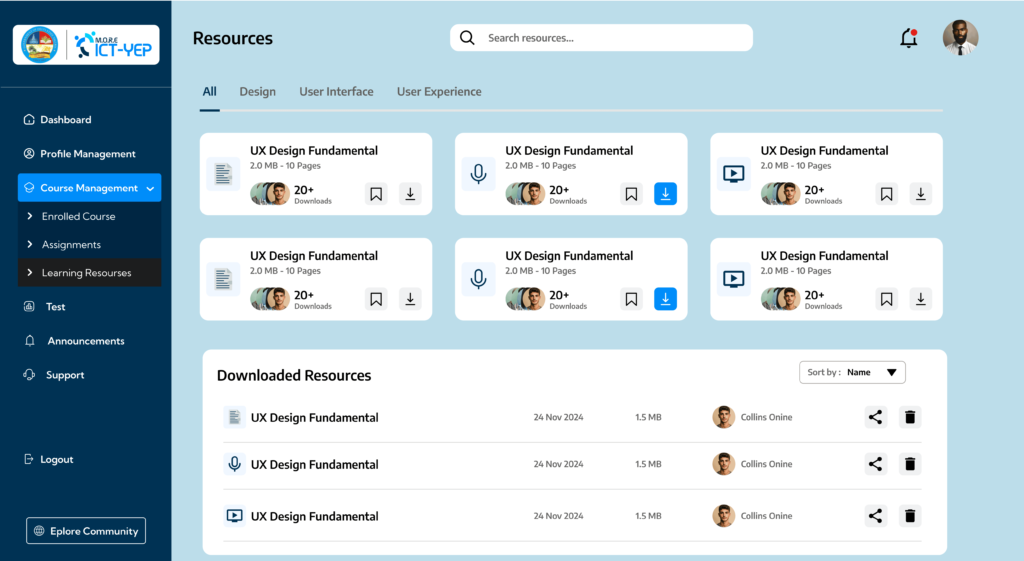
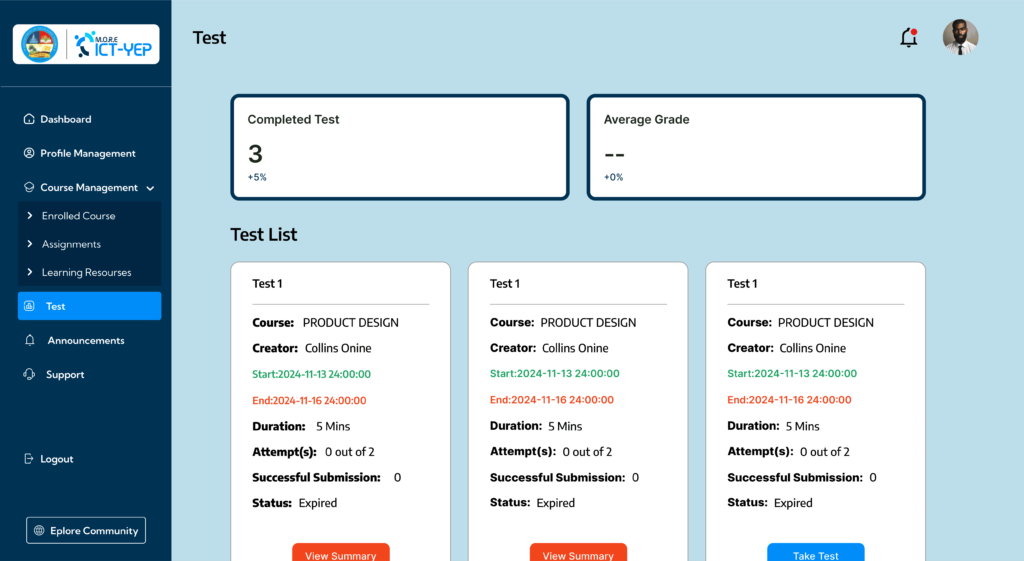
Actual Screenshot from Figma file
Major Screens Flow
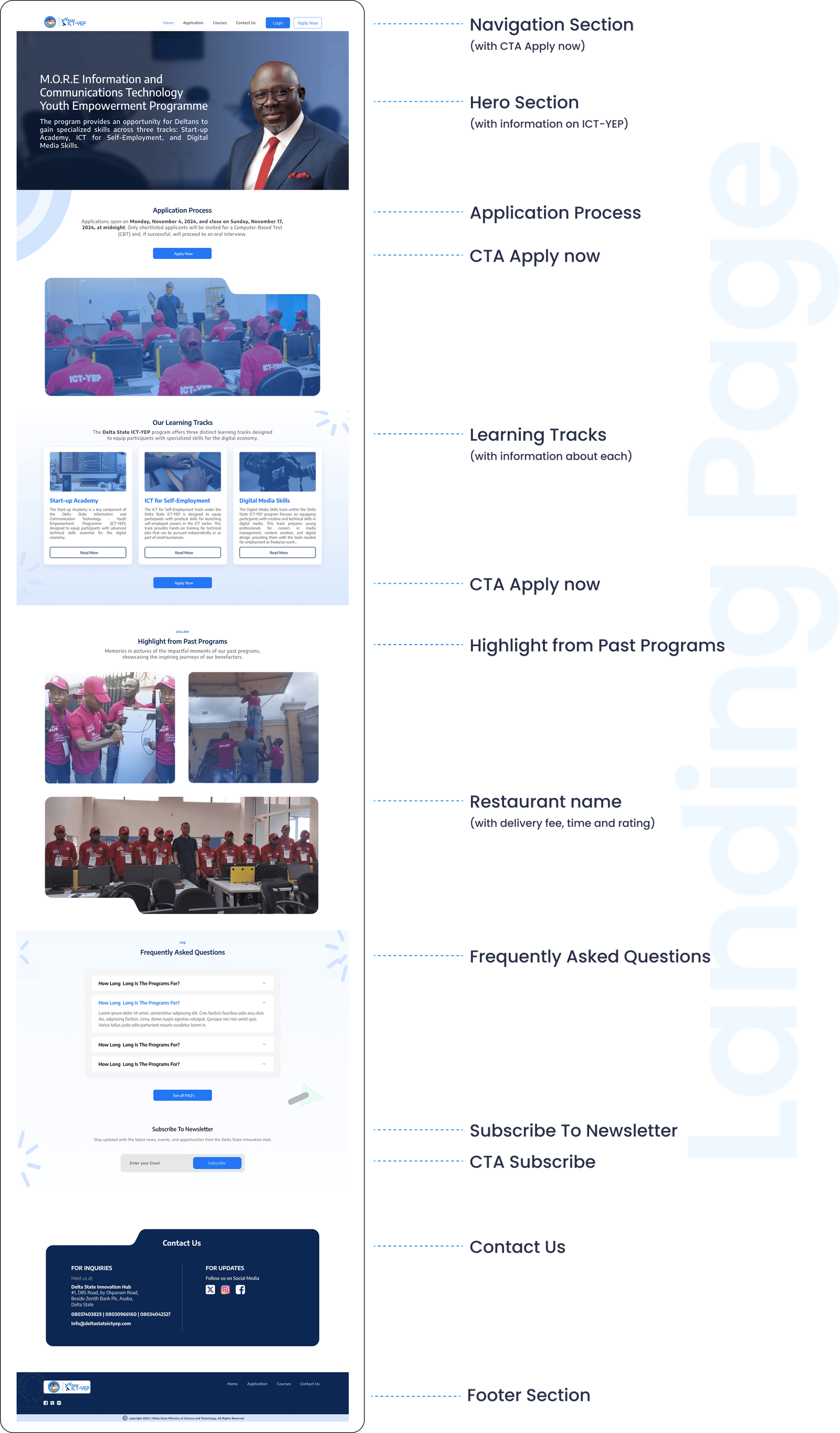
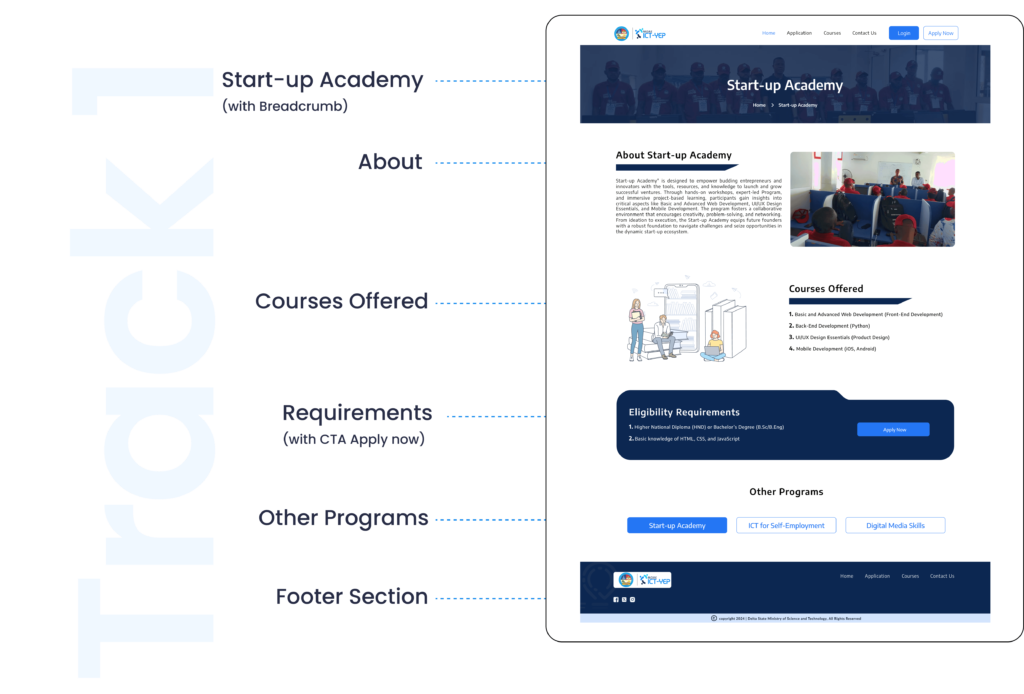
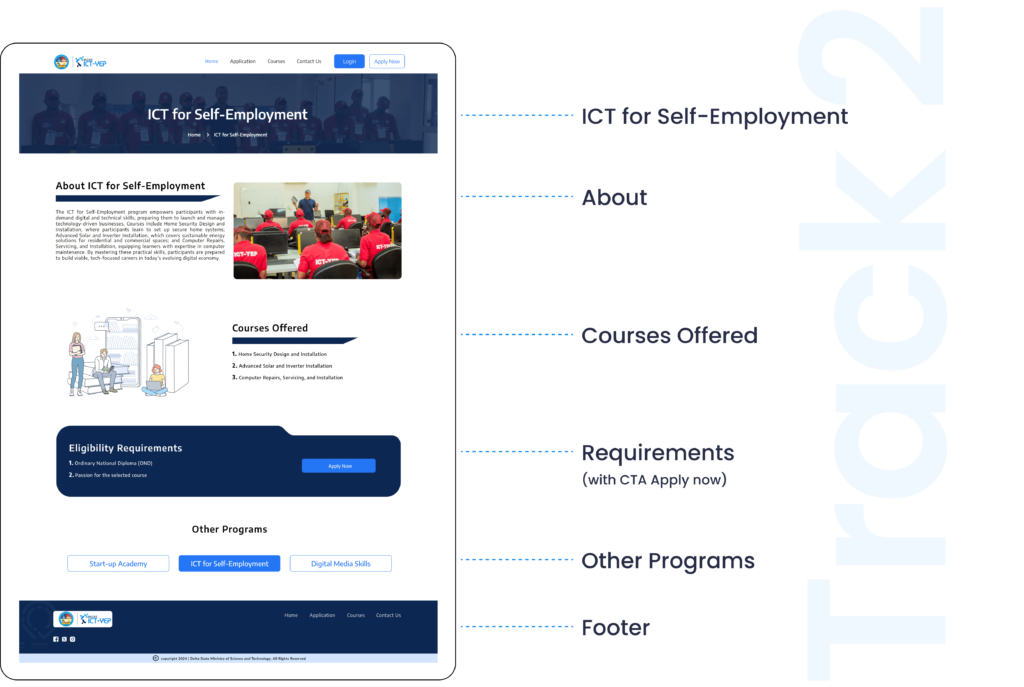
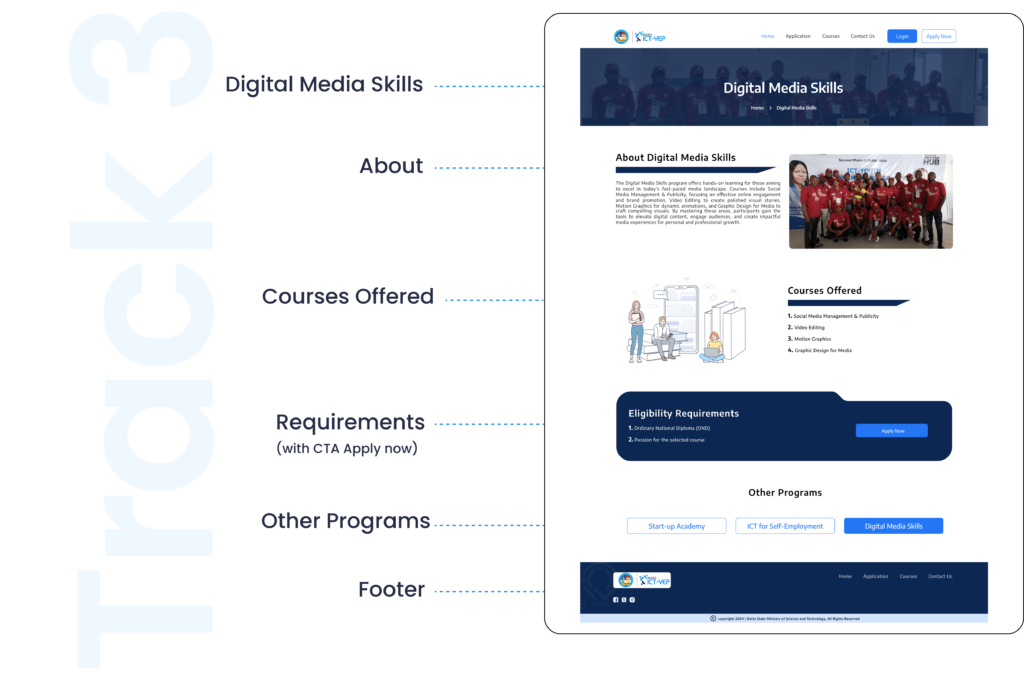
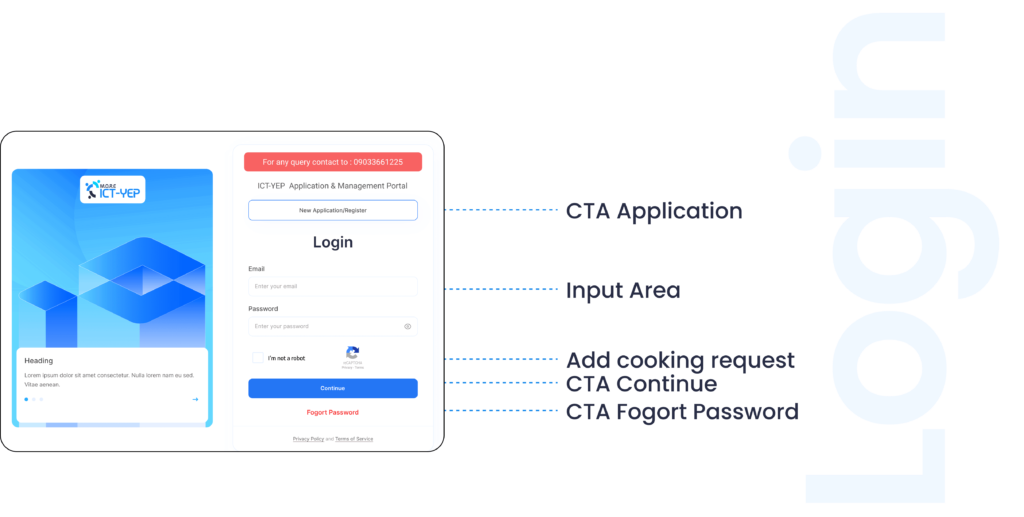
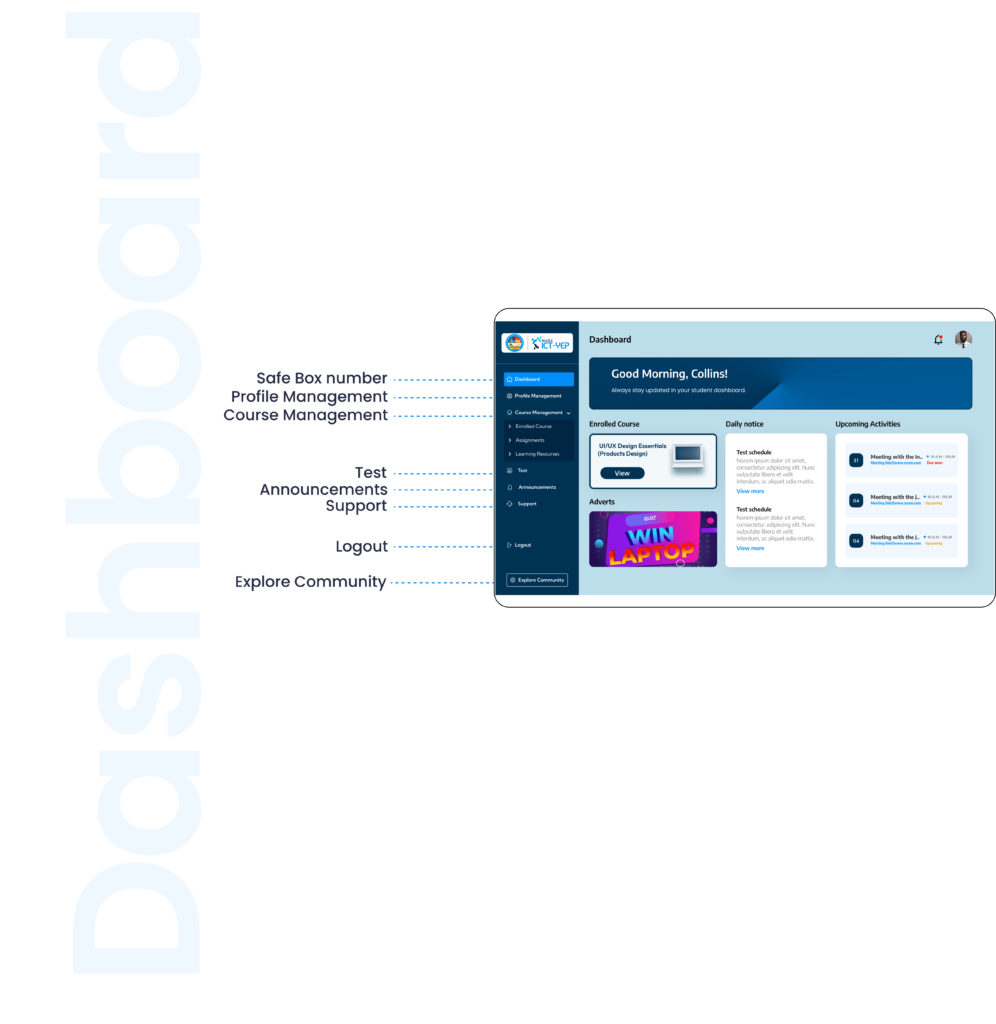
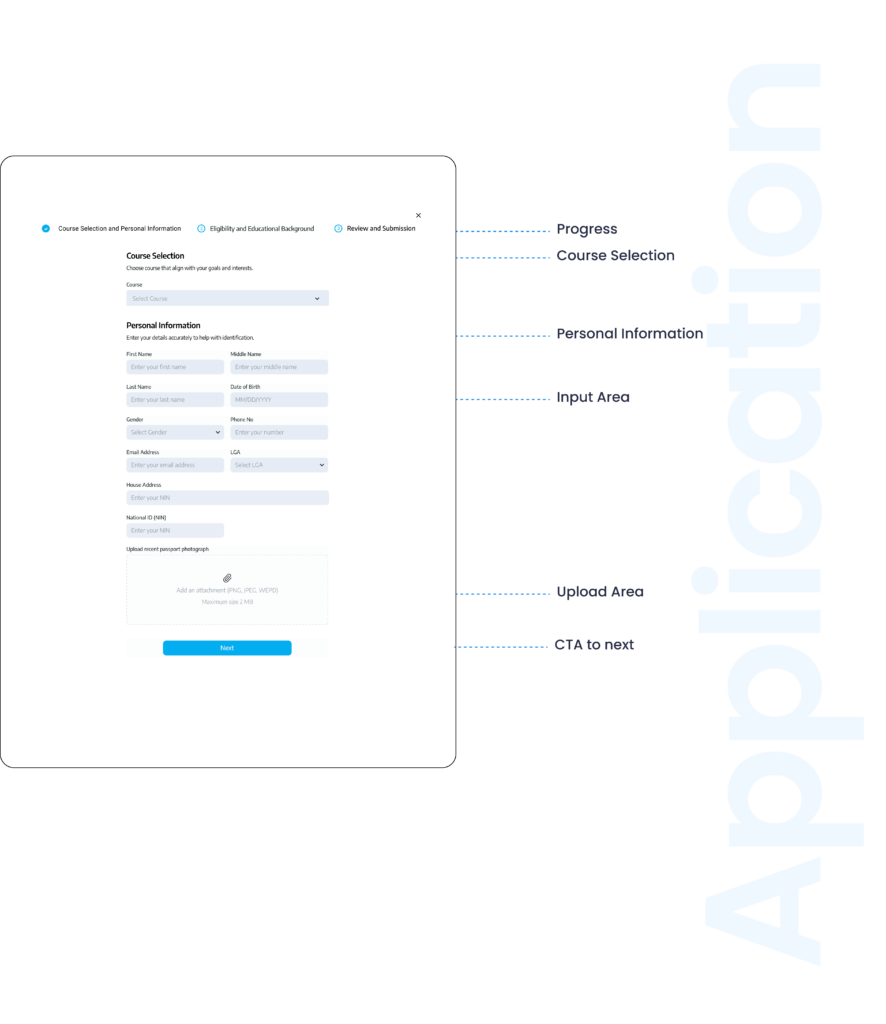
Conclusion
In this case study, I explored the design process for the ICT-YEP online application portal, aimed at providing a seamless and user-friendly experience for individuals applying for the program. Through extensive user research, and stakeholder interviews, I identified the key challenges and pain points applicants face and designed effective solutions to address them.
To overcome these challenges, I focused on creating a user-centered platform that emphasizes simplicity, accessibility, and reliability. This involved designing an intuitive user interface with clear navigation, implementing features like personalized dashboards, real-time application tracking, and easy access to program information.
The design process was guided by user insights derived from empathy maps and personas, which provided a deeper understanding of applicants’ motivations, frustrations, and needs. These insights ensured that every design decision was aligned with user expectations, enhancing the overall experience.
Additionally, I carried out a competitive analysis of similar apps in the market, including Jumia Food, Bolt Food, and Glovo. This analysis helped me identify gaps in existing services and design features that provide a unique value proposition for Foodville.
To optimize user engagement, I developed comprehensive user flows and information architecture that allow applicants to effortlessly navigate the portal—from registration to application submission. This structure ensures a seamless process that aligns with program goals and user preferences.
In conclusion, the ICT-YEP online application portal has been designed to streamline the application process while addressing user pain points, ensuring accessibility, and fostering trust. This case study demonstrates how a user-centric design approach, informed by research and analysis, can create a robust and intuitive platform that meets the needs of its target audience. The portal is now set to empower individuals seeking to benefit from the ICT-YEP program, contributing to their growth and development in the digital economy.

